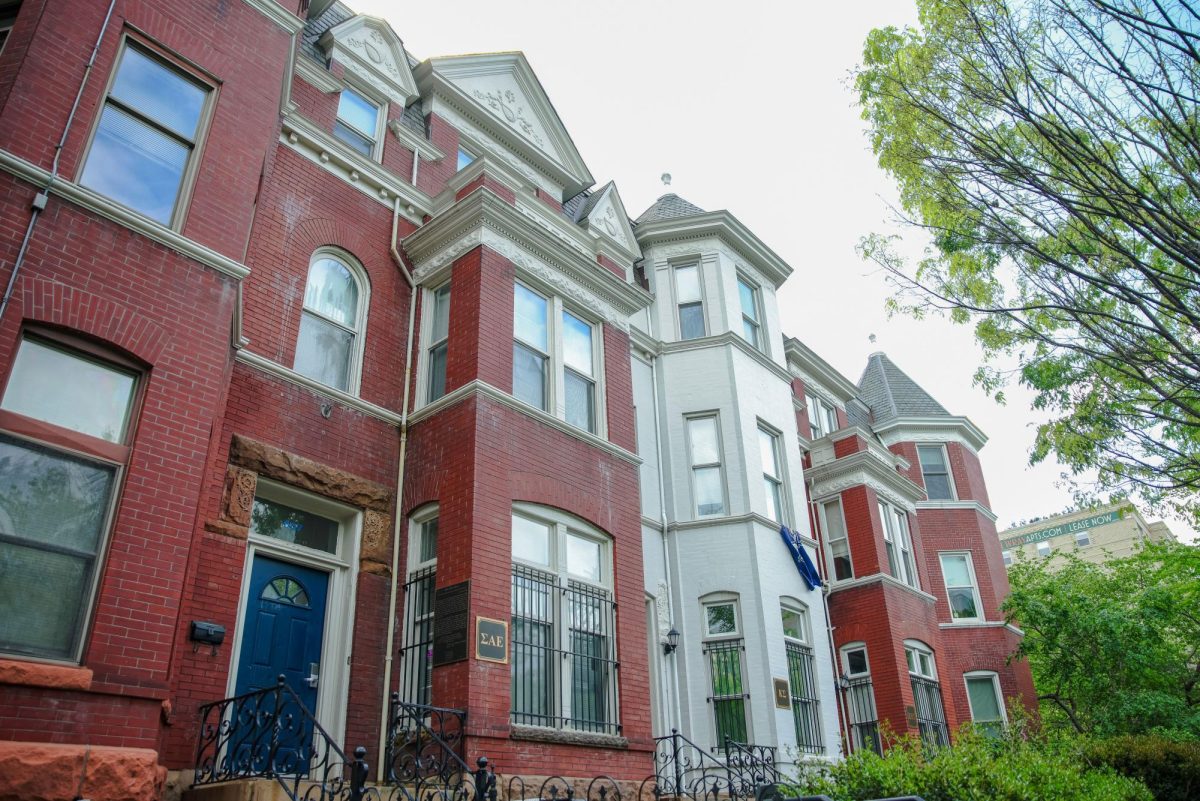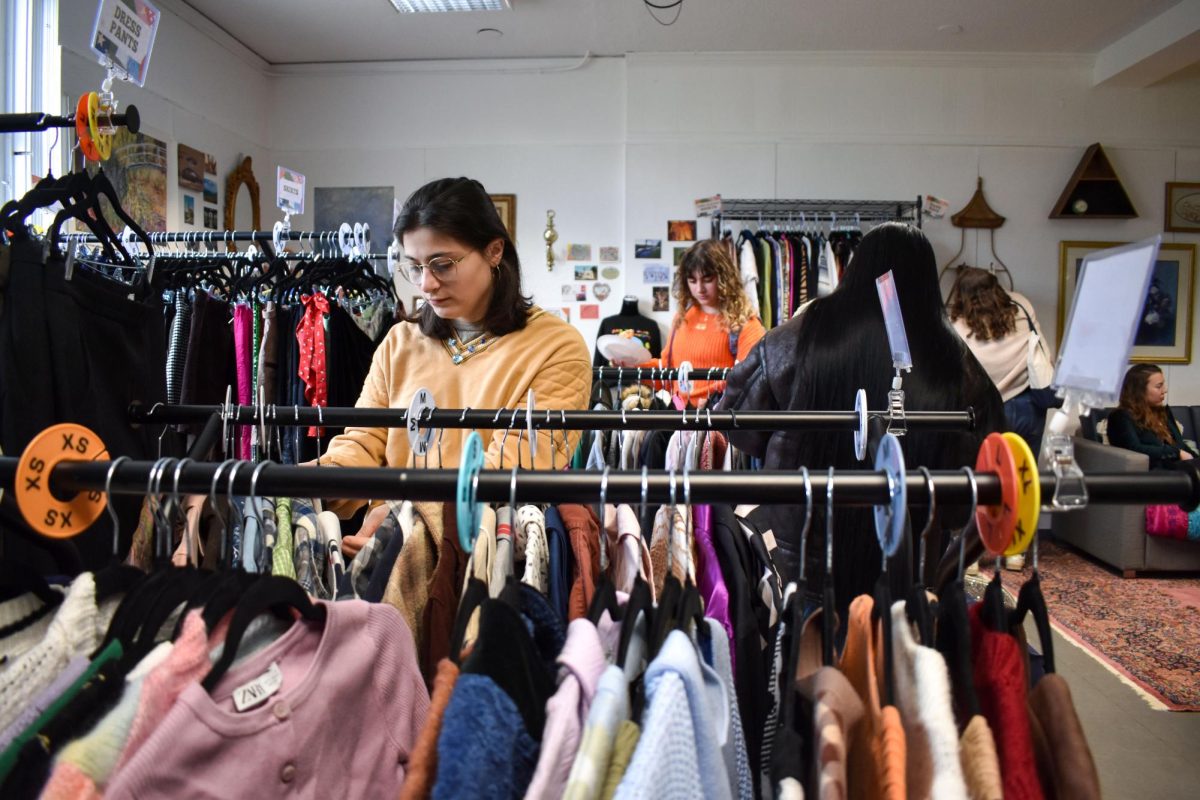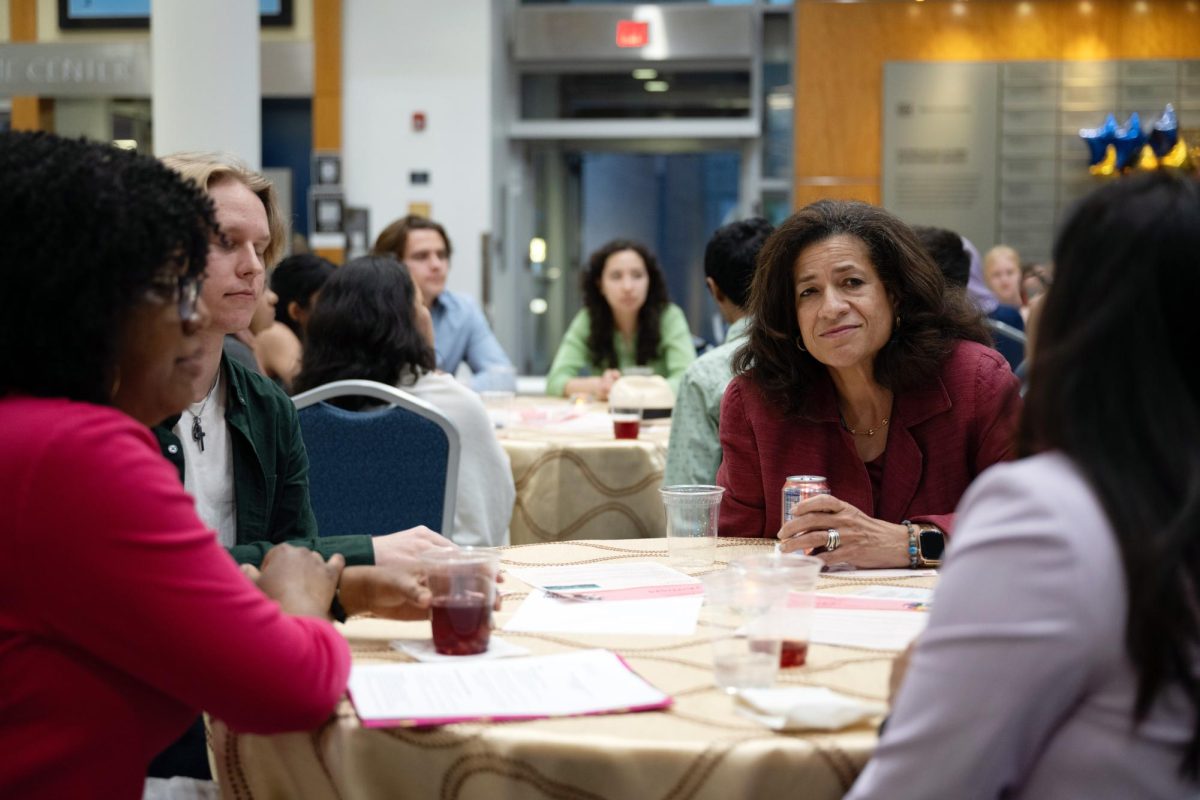Updated: July 23, 2020 at 10:30 a.m.
Editor’s note: This story includes allegations of sexual assault, rape, harassment and abuse.
Earlier this month, a female student tweeted about a sexual assault she experienced in April, alleging a recent graduate who she was dating at the time raped her.
Since then, at least 10 other people – two of whom were 15 years old at the time – have come forward on Twitter claiming the same graduate abused them in some way. Their allegations are directed toward Ethan Somers, a gun control advocate who worked with two national gun control organizations, Gifford’s and Guns Down America, the clothing company Rastaclat and a marketing company he co-founded called Culture Media Co. – all of which confirmed last week they will terminate his contracts with them.
The survivors, three of whom asked to remain anonymous, said they decided to come forward after the first woman spoke up, adding that they wanted to support the survivor and ensure people knew her story wasn’t isolated. They said they do not intend to press charges against Somers, but they hope their actions will push people to believe survivors and to hold student leaders accountable.
“Going forward, I hope this will make the GW community aware that self-proclaimed progressive men can be predators and that all survivors of abuse must be believed regardless of how ‘woke’ the perpetrator is,” one survivor said. “Overall, I am exhausted but glad that us coming forward has started a larger conversation about abuse and harassment on GW’s campus.”
During the weekend of the first posted allegations, Somers’ social media accounts, which had racked up thousands of followers on Instagram, Facebook and TikTok, were disabled as students protesting his platform shared survivors’ stories and campaigned for others to unfollow him.
Somers did not return multiple requests for comment. Culture Media Co., the organization he helped found, tweeted last week that Somers denies the allegations but “recognizes that the nature of these serious allegations may have hurt people within the Culture Media realm.”
The allegations
By the night of July 11, at least six people had come forward on social media with accusations of sexual assault against Somers. The next day, the survivor who had originally stepped forward tweeted that she had been contacted by 11 people who shared different stories of being harassed, coerced and psychologically manipulated by Somers.
In total, a half dozen survivors posted their experiences with Somers publicly on Twitter, and of those six, five responded to requests from The Hatchet. The first survivor to bring allegations against Somers declined to comment.
Survivors who made public comments on Twitter claimed Somers forced physical affection and psychologically manipulated them to gain their trust or coerce them into a relationship.
Two survivors who are not GW students claimed they were groomed by Somers, a form of sexual abuse through which abusers psychologically manipulate survivors, and had been in contact with him since 2018, feeling empowered to speak only after seeing others do the same on Twitter.
Becca, a survivor who asked to be referred to by nickname, said they had just turned 15 when they met with Somers in D.C. in June 2018, just before he began his first year at GW. When they first met, they said he put his hands on their thighs and hips “multiple times” even though they felt “incredibly uncomfortable.”
One student who asked to remain anonymous said she attended Somers’ end-of-the-year party for March for Our Lives in May 2019 when she decided to go back to her residence hall room after drinking. She said Somers repeatedly touched her throughout the night and held her by her waist as he walked her back to her room, which she said made her feel uncomfortable.
She said he gave a “brushed-off” apology the next day after she confronted him about the encounter. She said she chose to end their friendship that day but continued to work with him as a member of MFOL DC, where he served at the time as the communications director.
“Before everything between him and I happened, I really thought he was a feminist, and we were woke and on the right side of things,” she said. “That’s really how he presented himself, and I hope people are more willing and have a sharper eye on facades and realizing what’s real and what’s just a front to look good in Washington and get an internship.”
Days after allegations emerged, an Instagram account emerged where dozens of survivors have anonymously shared their experiences with sexual assault at GW. Of more than 100 allegations, 11 percent were tied to student organizations and 30 percent have been attributed to fraternities.
The Office for Diversity, Equity and Community Engagement released a statement Tuesday stating officials are aware and “deeply concerned” about the allegations described on the student-run account.
A ‘repeating pattern of behavior’
Survivors interviewed said they decided to speak up in support of the woman who first spoke out and demonstrate she was not alone in her experience with Somers. Those interviewed said pressuring Somers to disable his platform was one way of preventing him from gaining more prominence as an activist.
Becca, the survivor who asked to be referred to by nickname, said they do not plan to take legal action against Somers, but they hope the public can play a role in deplatforming his social media.
“What gave him the ability to do this to 11 people is his platform,” Becca said in an email. “I hope that the community will tear that down.”
Maya Siegel, a survivor and founder of Space to Speak, an organization dedicated to giving youth a platform in sexual violence prevention, said deplatforming Somers is individually holding him accountable, but society needs to bring greater attention to rape culture to ensure survivors are able to come forward and share their stories.
“I am working to continue educating and advocating for ways to fight for survivors and dismantle rape culture,” Siegel said in a statement sent to The Hatchet Wednesday. “This is how I’m choosing to respond to Ethan’s behavior because I don’t want to put focus on him – this problem runs far deeper than him and his terrible actions.”
Another survivor who requested to remain anonymous said she shared her experience with Somers “out of respect for the other victims.” She said she started talking to the alleged assailant when she was 15 years old after he followed her on Instagram.
“After everything that has happened these past few days, I realized how wrong it was,” she wrote in a tweet. “He was an adult, even if he still fit under the category of teenager at the time that we met. I now realize that Ethan was grooming me.”
None of the survivors interviewed said they blamed the organizations Somers was involved with as allowing the incidents to occur, adding that rank in student groups allows for abuse to go unnoticed. They said student leaders often emphasize performative activism – activism done to increase one’s social capital, which allows for students to gain recognition and power without accountability.
Another survivor who asked to remain anonymous said there needs to be a “serious” cultural shift within student organizational leadership at GW because it too often focuses on appearance over service. She said she was not a member of the same organizations as Somers, but his prominence in groups like MFOL made him appear trustworthy.
“I will say that I established boundaries with Ethan, and he crossed them several times, once when I was intoxicated and he was sober,” she said in an email. “I shared my story in order to publicly support the first woman who came forward and to show that what Ethan had done to her was not an isolated incident but fell into a repeating pattern of behavior of crossing boundaries with no regard for the other person.”
Simran Chowla, a co-state director for MFOL DC, said the group’s leaders had not been made aware of any of Somers’ behavior when he was involved with the organization. She said MFOL chapters in the District and at GW had previously disaffiliated themselves from Somers in June 2019 after he allegedly used his position in the organization to conduct interviews for his personal social media accounts.
Addressing sexual assault on campus
Sexual violence prevention experts said sexual assault is not an action that comes “out of the blue” but fits into a larger pattern of predatory behavior the assailant might exhibit. They said organizations should focus on addressing how leadership is held accountable when members express discomfort because of someone’s actions in addition to supporting survivors who do step forward.
Shafiqa Ahmadi, the co-director of the Center for Education, Identity and Social Justice at the University of Southern California, said people who hold leadership positions are given the benefit of the doubt and assumed to be good, placing more pressure on survivors to prove they were harmed. She said hostile environments are created in an organization when individuals who feel uncomfortable because of another member are dismissed.
She said colleges can expand survivors’ resources through means like creating a centralized public database where misconduct, harassment and assault are reported and tracked to capture reports from all over campus against an individual. By thoroughly documenting what happened, survivors can avoid having to relive their trauma by retelling their experience, Ahmadi said.
GW’s Title IX office currently offers survivors the ability to discuss their experiences with mandatory reporters or non-disclosing counselors.
“Survivors are often asked if they were drinking, what they were wearing, etc.,” Ahmadi said in an email. “None of this is a defense to assault/rape or harassment. Instead, we need to ask how did the leader abuse their power? How did the abuse of power create the hostile environment or lead to assault/rape?”
Shana Maier, a professor of criminal justice at Widener University, said a lack of awareness by universities and organizations on how to address allegations prevents survivors from reporting their experiences. She said prevention tactics like bystander education must be emphasized on college campuses and support must be provided to survivors who file a report in order to dismantle rape culture.
Maier said student organizations have a responsibility to reiterate the idea that sexual violence, whether a person is being sexually harassed or raped, is not tolerated.
“There is a way to promote that there’s a zero-tolerance policy without maybe naming someone,” Maier said. “If someone has the understanding that the organization does not accept or tolerate sexual violence in any way, they may be more likely to come forward.”
Kathleen Havener, a lawyer at The Cullen Law Firm in D.C. who researches Title IX, said studies show one in five women are sexually abused in college, but only 10 percent of the assaults committed are reported because of the low rate of convictions that occur.
She said new Title IX regulations proposed by President Donald Trump’s administration bind universities’ ability to successfully convict abusers, but campuses can still address sexual abuse on their campuses by providing social, mental and physical health resources that ensure survivors can process their trauma.
GW’s Office of Advocacy and Support and Counseling and Psychological Services offers confidential support for sexual assault survivors. GW Students Against Sexual Assault, a survivor advocacy group, offers group counseling and additional resources for survivors on campus to find support when they first come forward.
“The big change that’s absolutely required is the standard of evidence change to make it more difficult to prove your case,” Havener said. “But there’s nothing to stop schools from putting together the resources that people need when they’re in this situation.”
This post has been updated to reflect the following clarification:
An earlier version of this post stated that 11 people had come forward with allegations of sexual assault against Somers. The first woman who came forward said 10 individuals had been “afflicted” by him but was not more specific. We regret this error.






